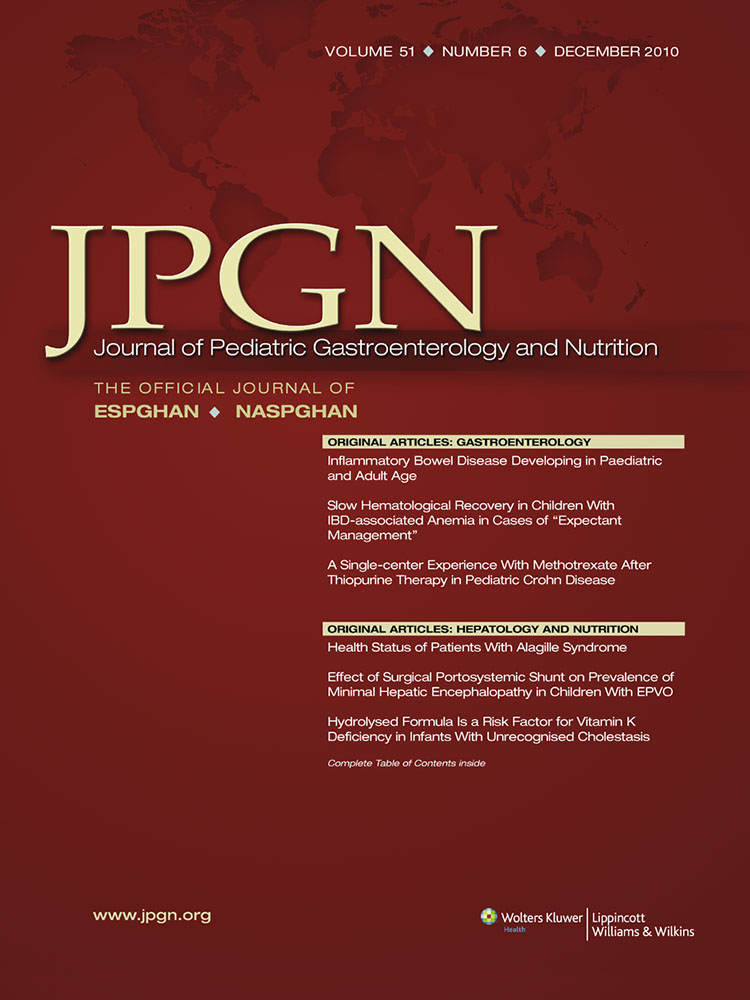Slow Hematological Recovery in Children With IBD-associated Anemia in Cases of “Expectant Management”
The authors report no conflicts of interest.
ABSTRACT
Background and Objective:
Allowing children with inflammatory bowel disease (IBD) to live with subnormal hemoglobin (Hb) levels affects their quality of life. The therapeutic approach to normalize Hb varies according to the cause of IBD-associated anemia. In exclusive iron-deficiency anemia (IDA) repletion of iron stores is obligatory, whereas controlling inflammation is the treatment of choice for anemia of chronic disease (ACD). In daily practice the focus is on control of intestinal inflammation, and spontaneous hematological recovery is awaited. The aim of the present study was to evaluate the hematological effect of “expectant management” on newly diagnosed pediatric patients with IBD with anemia.
Patients and Methods:
Medical records of children with IBD were reviewed. Study endpoints were the difference in Hb from the moment of IBD diagnosis (T0) to the end of the induction phase (T1), and time until normalization of Hb, stratified for the type of anemia at T0.
Results:
A total of 103 children were included in the study, of whom 80 (78%) had anemia at T0. Exclusive IDA was found in 58% of them. Expectant management caused a modest increase in Hb between T0 and T1 for both types of anemia (IDA 0.4 mmol/L; ACD 0.5 mmol/L), but 65 of 80 children (81%) still had anemia at T1. The proportion of children with exclusive IDA had increased to 74%. One third of the cases initially classified as having ACD had progressed to exclusive IDA. There was no significant difference in time until normalization of Hb between children with exclusive IDA and ACD. Twelve months after IBD diagnosis 24% of the group initially diagnosed as having exclusive IDA and 50% of the ACD group were still anemic.
Conclusions:
Hematological recovery in children with IBD-associated anemia is slow with expectant management, regardless of the type of anemia at T0. Present results underline the need for a more active approach to improve Hb.




